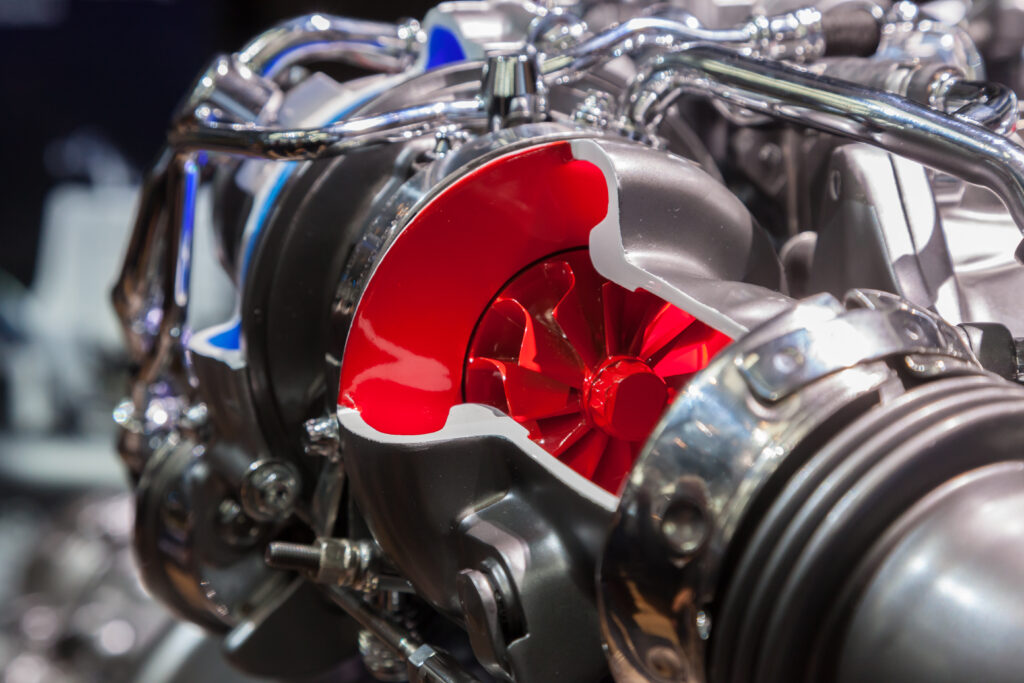Range Rovers are known for their durability, versatility, and power, making them ideal vehicles for off-road adventures. It’s not an easy task to create a vehicle with that level of power and endurance, so a way to maintain its performance is to care for the turbocharger.
Turbochargers provide the exhilarating driving experience that most Range Rovers users experience. It combines power, efficiency, and advanced technology to achieve optimum performance through various harsh conditions, driving through mountainous terrain and more.
If you want your Range Rover to serve you for a long time, ensure its turbocharger is cared for with regular maintenance and servicing. This article explores how to care for your Range Rover turbo to have it perform efficiently and at optimal conditions for years to come.
What Is A Turbo?

A turbocharger is a mechanism fitted to an engine designed to improve overall performance and efficiency. While it was first introduced to be used in aircraft, it has become a prominent feature in cars since the 1960s, where many vehicles today are equipped with turbochargers for enhanced performance and efficiency.
Most modern Range Rovers are equipped with turbochargers as they produce the same power output with a small capacity engine. Not only that, but they also increase fuel efficiency and lower emissions while on the road.
Without turbochargers, a car’s engine must work twice as hard to perform efficiently, leading to overheating and regular engine breakdowns. Turbochargers give the engine the extra push needed to keep it running smoothly and keep your driving experience safe.
How Does A Turbo Function?
The way a turbo functions is straightforward. Made up of two halves that are joined by a shaft, hot exhaust gases help spin the turbine connected to the other turbine to suck in air and compress it into the engine. The air compression process in the turbocharger gives the engine the extra power it needs to perform efficiently without exerting too much power.
Engines produce power by combining fuel and air, which is why turbos are a crucial mechanism to an engine, as they add more air into the mixture. The air pumps extra air into the engine, allowing fuel to burn more efficiently to produce more power. For a vehicle like a Range Rover, their turbochargers need extra care and maintenance to maintain their performance on off-road drives.
Signs Of Turbo Failure
Recognising signs of car turbo failure is crucial for maintaining optimal engine performance. To know the signs, here are a few to look out for to ensure your car is performing efficiently.
- Diminished acceleration: If your car is experiencing power loss or diminished acceleration, it’s a sign that your turbo is failing, as engine performance depends on how efficiently a turbo functions.
- Unusual noises from the engine: A turbo keeps the engine quiet as it silences the exhaust system, so if your engine is making unusual noises, your turbo needs to be checked.
- Exhaust smoke: When oil leaks into the exhaust system, it will release smoke. Oil leaks in the engine can happen when there is a crack in the turbocharger.
- Engine light lights up: Most cars, including Range Rovers, have engine lights on their dashboards that will light up if they face any issues. Once it lights up, check your turbo and engine to figure out the issue.
Looking out for these warning signals ensures prompt intervention, preserving both the turbocharger and the overall longevity of your vehicle.
5 Effective Ways To Maintain Your Turbocharger
Preserving your turbocharger is essential for enhanced performance and longevity, especially for Range Rovers that are powered to drive through various harsh off-road conditions. Taking a proactive approach is an effective way to maintain your turbocharger and keep it going for years.
Here are the 5 effective ways you can do to maintain your car’s turbocharger, preventing potential issues and costly repairs.
Regular Oil Change
Regular oil changes are needed to keep your turbo running efficiently. As turbo systems are made up of parts constantly moving at high speeds and under intense heat and pressure, they require a constant flow of quality engine oil to keep their parts lubricated.
Additionally, when turbos are well-lubricated, they reduce wear and tear and leaks that can damage the engine. Change the oil at least every 5,000km, or refer to your vehicle’s handbook for the recommended interval.
Don’t Overstep Turbo Limits
Some users might overstep turbo limits because they help exert power on a low-capacity engine. Remember not to go over turbo limits by being too aggressive on the accelerator, as this can lead to costly repairs in the future.
Instead, ease the power on slowly and sparingly use the accelerator to maintain your speed. For Range Rovers especially, cruise gently to spare your turbo, even when driving off-road.
Overtake using Gears
A turbo system might give a lot of power and torque to even the smallest engine, but don’t rely entirely on the turbo during acceleration. Ensure you still downshift when overtaking and avoid putting more pressure on the turbo.
Not only is this a safer long-term option when driving, but using gears helps limit the wear and tear experienced by the turbo system.
Warm Up the Engine
Before driving, ensure that you warm up the engine, as this prevents wear and tear in the turbo system. It is because engine oil thickens when cold, causing it to not flow as freely around the engine. Turbos rely on oil to keep them moving smoothly, so keep in mind to warm up your engine.
When starting a car, it is recommended to take it easy in the first 10 minutes, waiting for the engine oil to warm up and easing on the accelerator pedal to prevent unnecessary wear and tear in the turbo.
Let the Engine Cool Down
Other than letting the engine warm up, remember to have it cool down before turning it off. Allowing the engine to cool down prevents residual heat from boiling the oil in the turbo system, leading to carbon particle buildup in the turbo and engine system that can cause corrosion.
Ensure you keep your engine running for a couple of minutes idly before switching off the engine when the turbo system is cool so that it no longer has residual heat left.
Looking for a reliable auto parts store in Malaysia?
If you’re looking for an auto parts store to help you figure out your Range Rover turbo problems, look no further than Sun Eng Hup. As one of Malaysia’s most reputed and reliable automotive replacement part companies, we specialise in used and new auto parts, offering a wide range of services that cover diagnostic, rebuilt, remanufactured and used parts with a warranty period.
Sun Eng Hup has modern and advanced Automobile Diagnostic equipment to help diagnose your vehicle for effective and efficient parts replacement and repairs, including turbos. Visit our website now to learn more about our services.

